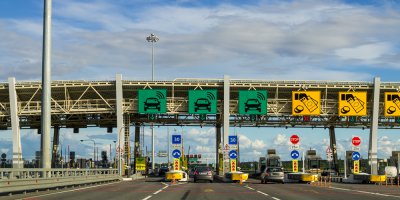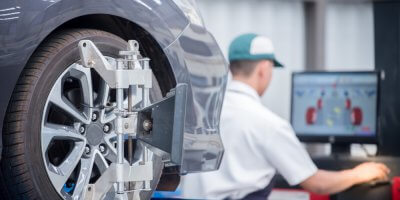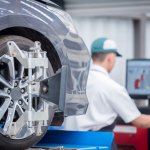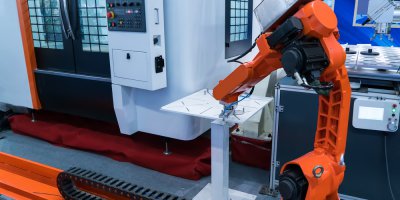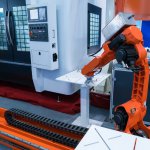
IoT devices are most commonly deployed in industry setting to gather data on machine wear and tear. Source: Shutterstock
Applying IoT to the enterprise world and why it matters
THEORETICALLY, the internet of things (IoT) has a lot of potential and is one of the core elements of Industry 4.0. However, actual implementation in the enterprise space has been few and far between.
Upon full adoption of the technology, IoT devices are expected to seamlessly gather data, allowing for faster and better decisions making.
IoT devices drive automation initiative for companies, which then optimize efficiency, reduce wastages and maximize profit.
Here are a few use case of IoT devices at the moment.
# 1 | Industrial preventative maintenance
One of the most robust implementations of IoT devices is in the area of preventative maintenance, primarily in the industrial environment.
The application is pretty straightforward. Companies measure the stress and usage of industrial equipment by deploying IoT devices such as vibration and wear sensors.
These sensors collect valuable data and communicate with the endpoint or a server in the cloud which then could be processed by an AI system that compares the data based on historical figures and pre-empts when maintenance will be required.
In this application, IoT technology could definitively cut maintenance costs and reduce downtime by servicing equipment ahead of crucial periods.
# 2 | Fleet management and tracking
Another prominent use of IoT is in the fleet management, whereby it is integrated with GPS locator enabling IoT devices to communicate its location back to the company’s central command via a cellular network.
This application is often used by businesses with a large number of vehicles, such as car rental company, trucks, and other transportation providers that need to track the movement of their assets.
Some vehicles with more advanced sensors can even relay more detailed information such as travel speed, engine temperature, fuel level, battery level and so worth that enables preventative and predictive maintenance.
Shipping company could also track the load of the freight at any given time for optimization of the delivery route.
# 3 | Building management
IoT use cases are not just limited to businesses with heavy machinery and big fleets of vehicles. Some enterprises adopt the technology for building management purposes and use motion sensors, cameras, and other security devices are connected to a common network.
The central console that gathers all the data will then automatically adjust the temperature, lighting, elevators and HVAC systems based on the current occupancy and usage of the building, instead of operating on an pre-set configuration or arbitrary schedule.
Adopting this smarter approach is more eco-friendly and slashed the operation cost of the business.
# 4 | Smart agriculture
Agriculture is yet another sector that has embraced IoT. Farmers deploying a wide range of IoT devices on the field, in a efforts to opt for a smarter and modern approach to farming.
Precision navigation and tracking systems enabled the tech allows farmers to practice precision farming, optimize harvesting for maximum yield.
Beyond that, sensors in the soil could measure the pH, moisture and nutrient contents and transmit the data to farmers computer, giving the complete more holistic information of the field.
# 5 | Cutting edge healthcare
As the IoT devices are becoming more robust, the healthcare industry is beginning to apply IoT’s machine to machine communication technology to their operations as well.
Efforts are ongoing to integrate diagnostic devices and tools such as blood pressure monitor, imaging devices and other health monitors to more advanced back-end systems for more seamless data transmission that will improve the accuracy of diagnostics.
So, in conclusion, IoT technology is already being implemented in various industries and businesses that invested in IoT systems are already reaping the benefits.
And as networks become more powerful and secure, the proliferation of IoT devices will usher in a new era of interconnectedness which will only further revolutionize the industries.
READ MORE
- The criticality of endpoint management in cybersecurity and operations
- Ethical AI: The renewed importance of safeguarding data and customer privacy in Generative AI applications
- How Japan balances AI-driven opportunities with cybersecurity needs
- Deploying SASE: Benchmarking your approach
- Insurance everywhere all at once: the digital transformation of the APAC insurance industry

